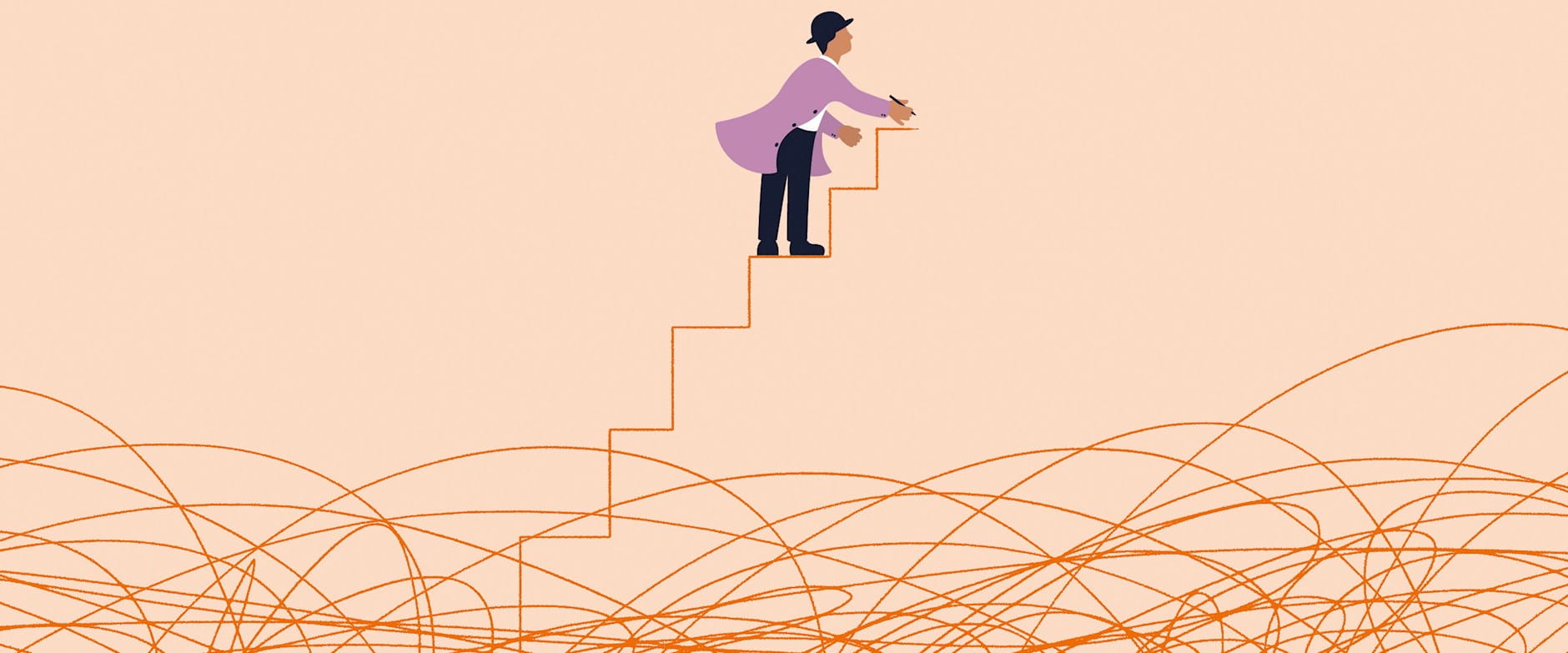
A Management Take on Climbing Mount Kilimanjaro
Ken Lobo, ’92, cherishes reaching the summit as much for the observations he gathered along the way as for the sense of achievement.
A Management Take on Climbing Mount Kilimanjaro
Peter Williams, ’10 (AXP-9), lives by a lesson he learned from Ronald S. Burt, the Charles M. Harper Leadership Professor of Sociology and Strategy: always put yourself at risk of productive accidents. Williams is currently a director of corporate treasury at Citibank, covering Asia Pacific from Hong Kong. Since graduating from the Executive MBA Program in 2010, he’s continued to apply Professor Burt’s lessons, and now has distilled his own insights into Productive Accidents: A Playbook for Personal & Professional Adventure.
The best thing that professor and researcher Ron Burt [the Charles M. Harper Leadership Professor of Sociology and Strategy] did for me in the Executive MBA Program Singapore was to digest his research into a single phrase: “Put yourself at risk of productive accidents.” This simple phrase became a filter for decisions and action.
For example, my accepting an invitation to captain a tennis team led to a family snowboarding trip in Niseko, Japan, followed by an opportunity for our children to attend a summer camp there. On another occasion, my volunteering to prepare speakers for TEDxHongKong led to a collaboration with Concerts for Causes, and an invitation to join the board of Music for Life International in New York as well as the board of Resolve Foundation in Hong Kong.
Ultimately, it became clear that the entire Chicago Booth MBA Program is designed to put each of us at risk of productive accident. Professor Burt spoke at our Kick-Off Week and recommended that we all spend as much time building our network as studying for exams. Being the bridge between closed networks became a gateway to creativity, insights, innovation, and in my case, adventure.
“When you take these small risks, something interesting happens.”
For example, if I were invited to speak at or attend an event that’s unrelated to my day job, I would say yes. There’s no guarantee, but in my experience, 80 percent of the time, when you take these small risks, something interesting happens. Maintain a growth mindset and remain alert because something routine in one industry can be revolutionary in another. The focus on diversity and inclusion is also consistent with this approach, because it provides a pipeline for productive accidents. This has also evolved into a framework for networking—make a connection, keep talking until you find something you both care about, and then collaborate.
My book is also influenced by the “lean startup” approach to entrepreneurship. The old way to innovate was to spend an entire budget trying to build the perfect product. The new way is to spend as little as possible on a prototype, which gives you the chance to get feedback from customers. I’m treating my book, Productive Accidents, as that prototype—that’s why “Version 0.0” is written on the cover. I want the people who read it with their different perspectives to send me their feedback and suggestions for what should happen next. Each time there’s a new connection that turns into a new collaboration, it forms the basis for another chapter or another version of the book. That’s where the fun is—finding ways for work and play to converge is a key message of the book.
The book focuses on 10 insights I’ve discovered since graduating in 2010, inspired by many “productive accidents.” It’s relevant for anyone that’s interested in creativity and innovation because it shows you how to keep experimenting, powered by Professor Burt’s research: put yourself at risk of productive accidents, trust the process, and wait for the magic to happen.

Ken Lobo, ’92, cherishes reaching the summit as much for the observations he gathered along the way as for the sense of achievement.
A Management Take on Climbing Mount Kilimanjaro
In a career full of course corrections, Bharat Kapoor, ’10, has tackled everything from fashion photography to computer engineering to a consulting career at Kearney.
Steering through Serendipities
Our 2021 alumni survey explores the career growth, collaboration, and commitment to learning of our global Booth community.
Survey Says!